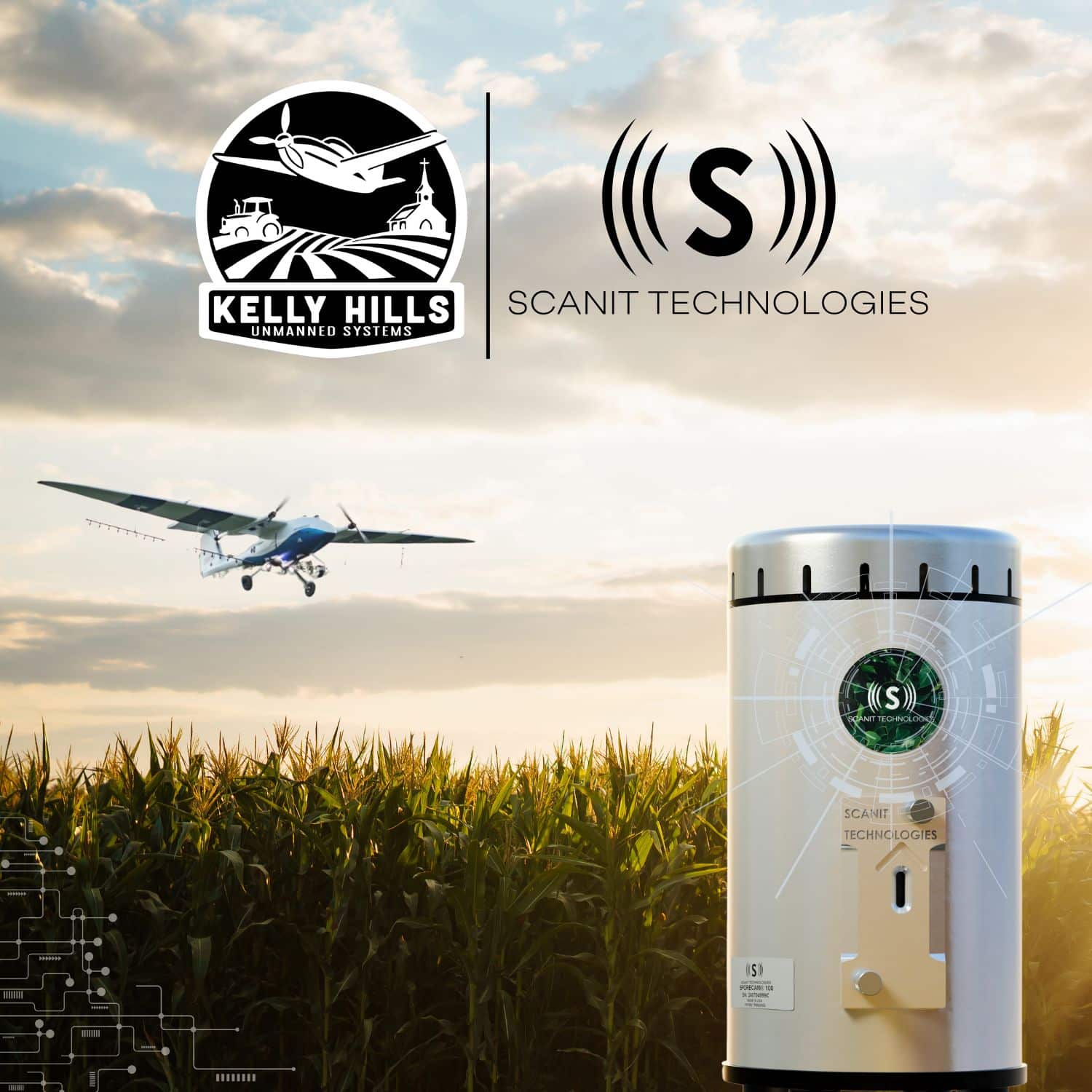Key Takeaways
- Scanit Technologies and Kelly Hills Unmanned Systems announce collaboration on autonomous disease management
- The system will combine real-time pathogen detection with precision drone-based spraying
- The goal is to reduce response time between disease detection and treatment in row crops
- Target crops include corn and soybeans, where timing is critical to protect yields
- Pilot programs and rollout plans are expected to follow
Scanit Technologies' Partnership With Kelly Hills Unmanned Systems
Scanit Technologies, Inc. has partnered with Kelly Hills Unmanned Systems to develop an Autonomous Crop Protection Stack, aimed at improving disease response timing in crops such as corn and soybeans. The collaboration seeks to bridge the gap between pathogen detection and fungicide application by integrating real-time monitoring tools with autonomous aerial spraying systems.
The companies describe the project as a way to enhance precision and responsiveness in disease management, particularly in environments where delayed treatment often results in significant yield loss.
Integration of Detection and Application Technologies
Real-Time Alerts and Autonomous Response
The system will link Scanit’s SporeCams™, which detect airborne pathogens in real time, with Kelly Hills' drone-based application technology, enabling quicker field-level decisions and targeted fungicide deployment. By reducing the delay between detection and intervention, the partners aim to offer a new tool for proactive crop protection.
Lukas Koch, Founder & CEO of Kelly Hills Unmanned Systems, stated: “This partnership is about empowering farmers with autonomy—not just in detection, but in response. By combining real-time pathogen intelligence with aerial precision, we’re unlocking a new era of crop protection.”
Outlook and Next Steps For Scanit & Kelly Hills
The companies plan to begin pilot programs in the near future and will share updates on rollout plans as development progresses. The collaboration reflects a broader trend toward automated and integrated solutions in agriculture, where real-time data and autonomous systems are increasingly seen as key to improving productivity and sustainability.


